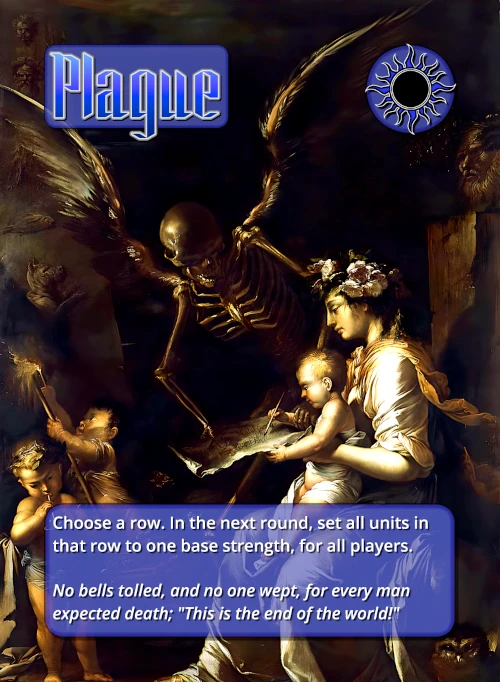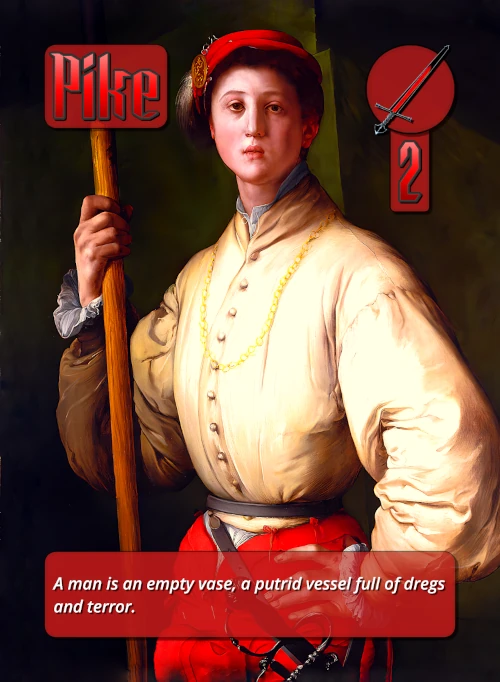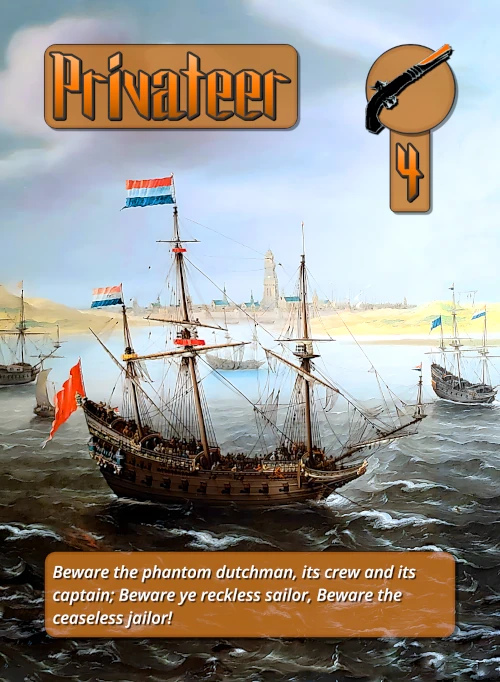Type: Weather Power
Effect Text: Choose a row. In the next round, set all units in that row to one base strength, for all players.
Flavor Text: No bells tolled, and no one wept, for every man expected death; "This is the end of the world!"
Flavor Source: Agnolo di Tura, Cronica Senese
Artwork: Human Fragility by Salvator Rosa (17th century)
Strategy:
Plague has the advantage that you choose the row, but the disadvantage that your opponent can also capitalize on this information. For this reason, it’s best to play this card in a row that your opponent hasn’t heavily played in so far (in the hope that they mostly have these units left for the next round). Alternatively, trick your opponent by combining with a card like Gale which can move the weather: (1) declare a row to affect next round, then (2) move the weather to a different row late in the next round. Another useful strategy is to play Plague in a row that your opponent is trying to double next round (e.g. with Eclipse), or a row in which they’ve set aside cards for next round. Remember, you must declare the weather’s row when the card is played.
About the card:
After one of the most deadly plagues in history, Salvator Rosa painted this card art in Naples. During the plague, he lost many of his family members including his brother, sister, and son. The death toll would reach 1.25 million across southern Italy and in some cities the population was a half or a third compared to pre-plague totals. The flavor text for this card comes from another plague three centuries earlier in Siena. The full quotation is as follows:
“And I, Agnolo di Tura called Grasso, buried five of my sons in one trench with my own hands; and many others did the like. And also there were some that were so badly covered up that the dogs dragged them out, and ate many bodies in the city. No bells tolled, and no one wept at any misfortune that befell, for almost every person expected death; and the thing went in such wise that folk thought that no one would remain on live, and many men believed and said: This is the end of the world. Here no physician availed, nor medicine, nor any defense; rather it seemed that the more precaution a man took, the sooner he died.”






